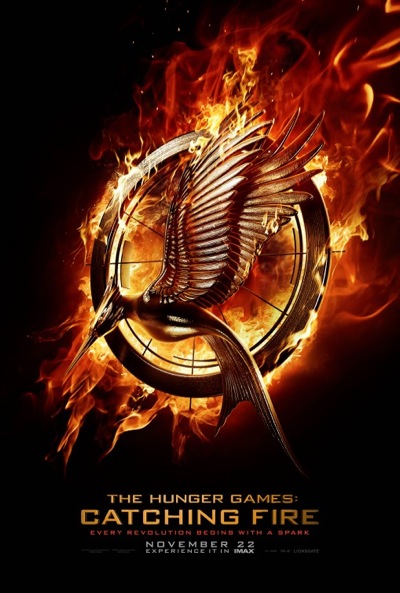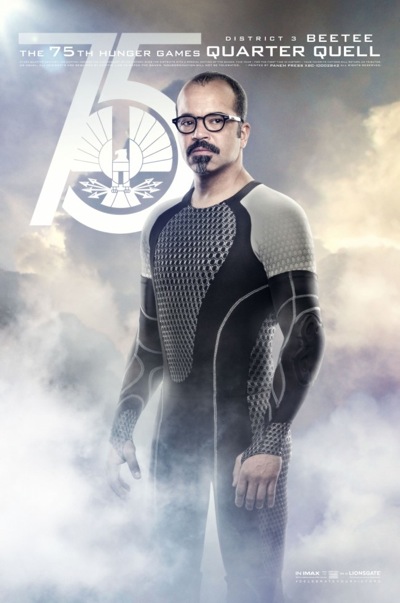
Jeffrey Wright was already a big deal on the New York City theater scene when I saw him in title role of Julian Schnabel's BASQUIAT, and yet the hype surrounding his talent was shockingly insufficient. Wright burrowed so deep into the tortured artist's psyche that you feared for the actor's mental health. Some actors can disappear into a role with chameleon-esque ease, but Wright's performance was more than surface gestures and studied tics; he was deep in there in that way De Niro used to get. It was a ferocious commitment to character: a brilliant beginning to what was sure to be a brilliant career.
Wright has yet to let us down, but, as far as film is concerned, he's had depressingly few opportunities to inhabit a part with as much complexity as Basquiat. One of his finest performances subsequently was in Ang Lee's Civil War drama RIDE WITH THE DEVIL, a film that was initially discarded by its studio, only to be rediscovered and expanded by the Criterion Collection. In that movie, Wright plays Daniel Holt, an African-American whose freedom was granted by the son of his former owner. Holt is a fascinating contradiction: though free, he still fights alongside the son with the Missouri Bushwhackers, who are aligned with the Confederacy. Holt is a man of few words, which makes him even more difficult to work out, but Lee gives Wright the space to flesh out the character. As is the case with his white compatriots, Holt is conflicted about how to proceed in a rapidly evolving country; it all builds to a powerful final scene that moves me to tears every time I watch the film (which is often).
To get the full measure of Wright as an actor, you might need to catch him on stage. I was fortunate enough to see him in the Public Theater's production of Suzan Lori-Park's TOPDOG/UNDERDOG, a two-character play that pitted Wright against the formidable Don Cheadle. I wrote about the show twelve years ago for AICN, and dearly wish the duo could find the time to do a big-screen rendition; then again, it's such a highly theatrical experience that I'm not sure it would translate to the recorded medium. As with many of the best plays, you've got to be there in the moment with the actors - and being in the moment with Wright is as good as theater gets.
Though Wright's film work has largely consisted of supporting performances, he has a habit of dominating them. He flat-out swiped the SHAFT remake from star Samuel L. Jackson as the Domican drug dealer Peoples Hernandez, and was transcendent once again as drag queen Belize in the TV adaptation of ANGELS IN AMERICA (reprising the role that earned him a Tony in 1994). Now, he's taking on the analytical Beetee in THE HUNGER GAMES: CATCHING FIRE, which relies heavily on Wright's talent for understatement. Though he's a part of a very large ensemble in this massive tentpole film, Wright sinks right into the character and finds just enough nuance to make him more than just a function of the plot. I hope Beetee has more to do in the story going forward.
This interview got off to a lively start when Wright recalled that we'd corresponded a couple of months ago on Twitter. I wasn't going to bring it up because it was all about the Washington Redskins (Wright's a die-hard fan), but this gave him an opportunity to vent about his beloved team's losing season, which had taken a ghastly turn the night before in a crushing loss to the Vikings. Once he'd unloaded, we got right into it.

Mr. Beaks: For something like this, where you're walking into an ongoing franchise and you're just a component of this much larger world, how fully did you feel like you had to familiarize yourself with the source material?
Jeffrey Wright: Once I signed on and we got down to Atlanta to start rehearsing, I read all three books. You'd have to be knucklehead not to if you're playing a part in a movie, and there's actually a kind of encyclopedia to reference - which is what the trilogy represents. Also, your acting most times is about not making a fool of yourself. You use whatever crutch and means that are at your disposal to achieve that. Suzanne had all of these amazing crutches to offer me as I learned who Beetee was.
Beaks: You say it's about not making a fool of yourself. Oftentimes, that's up to the director, who gets to choose what takes he uses. How do you know you can trust a director to do right by your work?
Wright: It's a collaborative process, particularly film. There are very few really good directors. Very few. If you think about it, a man or a woman is going to direct a movie, and he or she has worked on three movies prior. They show up thinking they have some idea about moviemaking or about acting, and they've never acted. Although they have actually completed three movies, it doesn't necessarily mean they have an understanding of what it's about. The best directors are the actor's third eye, because you can't see everything while you're doing it. The worst directors see less than you see as you're performing, and the best see more. Francis Lawrence is among the best directors. Not only is he able to watch your performance and enhance it because he's seeing those things that you can't, he also has a very clear, well-considered vision of the larger story. What blew the back of my head out as I watched this movie was how absolutely masterful Francis was in realizing the picture. For me, he is among the best type of an artist. He knows his business, but does it in an entirely understated way. We all have ego, and whatever ego he has is entirely outmatched by his talent. It's such a joy. We were on set, and he's quiet and calm, but highly focused. He's got a whole cinematic universe bouncing around in his head, and all of these various components that he's trying to fit together. He's the real Beetee in all of this. He's the real scientist.
Beaks: You're a part of an ensemble in this movie, and all of these characters are playing the game their way. Beetee plays it close to the vest. You've been in both positions: you've played guys who are trying to stay below the radar, and then you've played more flamboyant guys like Peoples Hernandez in SHAFT. What's the difference in your approach with regards to what the character demands?
Wright: It all depends on what the words say and what the words suggest. I just try to play whatever music is appropriate. Peoples... (Laughs) there was no hidden agenda there. It was pretty much all out there to be seen. That's how it read on the page to me. Here's a guy where if it comes into his head, he's going to say it. Obviously, he's calculating and he's got a bit of a hidden agenda, but he's an exhibitionist - whereas Beetee has secrets. Beetee definitely has a hidden agenda. He's trying to survive. He's fearful, but he's strategic. You know, there's no real technique. There's no real method. It's just trying to be open to whatever the next suggestion is from the part.
Beaks: One film of yours that has gained a following over the years is RIDE WITH THE DEVIL. When it was released, it was largely dismissed, but now it's in the Criterion Collection and viewed as a significant film in Ang Lee's career. I'm curious as to what you think about this unlikely journey. Daniel Holt is such a fascinating character, and you played him with such amazing sensitivity.
Wright: Of all the things I've done, that may be the movie that I hold closest to my heart. That may be in part because it was treated like a red-headed stepchild by the studio at the time. That's what happened to that movie. When we shot the film, there was one executive team at Universal, and there was a changing of the guard in between the completion of the movie and the release. The new group didn't want to support the movie, so it fizzled. It was a huge disappointment, and I was really pissed off. I mean, it's an Ang Lee movie! Why would you do that to an Ang Lee movie? And it's a beautiful examination, like de Tocqueville, from a very considerate outsider of this major American event. It was the last movie of the twentieth century about the Civil War, and it was also a very personal story for me obviously.
But at the same time, one of the things I was most disappointed about and outraged by was that one of the reasons they did not support the movie is because they couldn't figure out what this character Daniel Holt was about, and why he was a freed slave fighting on the side of the Confederacy. They couldn't figure out how to market that; they couldn't figure out who that would appeal to. They took my image off the poster at one point. A whole lot of bullshit went down with that movie. This kind of neo-liberal mindset couldn't get over this idea that this was an African-American who wasn't emancipated by the Great White Savior, but emancipated himself. It was a complicated journey that wasn't something that necessarily comes to mind when we think of the Civil War. We have these very pat ideas of who we are, and it was disruptive of that simplicity. It's a complex thing. It's not black-and-white. It's not even grey-and-blue. It could be that the grey had a tinge of blue in them, and some of the blue might've had a tinge of grey. We're complicated people. I've gotten over that, but it was a huge disappointment.
It's events like that, or experiences like that with the movie industry, that really kind of led me to focus away from acting and onto some of the other things I've been involved in. It's only in the last few years that I've said, "Let me re-focus in the way that I used to." Because you put a lot of yourself into these things, and you make yourself vulnerable. And when it's not respected, you say, "Well, why the fuck would I do that again? If my work and the work of Ang Lee and all of the people who dove into that story is going to be so disrespected by the people who are supposed to be protecting it, and they're doing it because of these totally ignorant, racially simplistic reasons, you just go, "This is not my beautiful house."
(The publicist in the room, who just gave me the wrap-it-up signal, laughs.)
Publicist: Well, on that positive note...
Wright: No, I'm glad you asked about that, man!
Beaks: (To the publicist) Come on! I think it's positive. He's re-focused on acting! We need this guy!
Wright: Let me just say one last thing. It's rare that you find these stories that mean something to you, where you have this highly skilled group of people and all the powers that be supporting the work. To be a part of a franchise like this, or like the Bond franchise, has rekindled my enthusiasm and faith in the work that we do. It's all good.
THE HUNGER GAMES: CATCHING FIRE opens worldwide on November 22nd. You can purchase the Criterion Collection Blu-ray of RIDE WITH THE DEVIL right here.
Faithfully submitted,
Mr. Beaks
